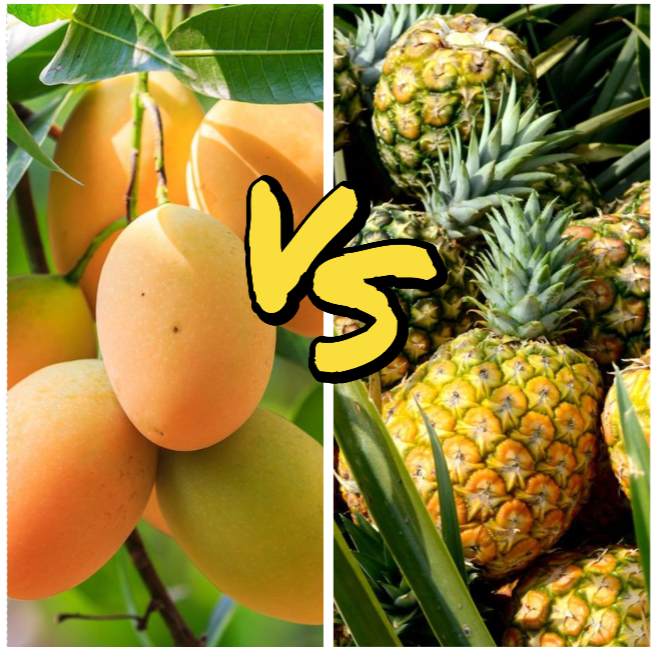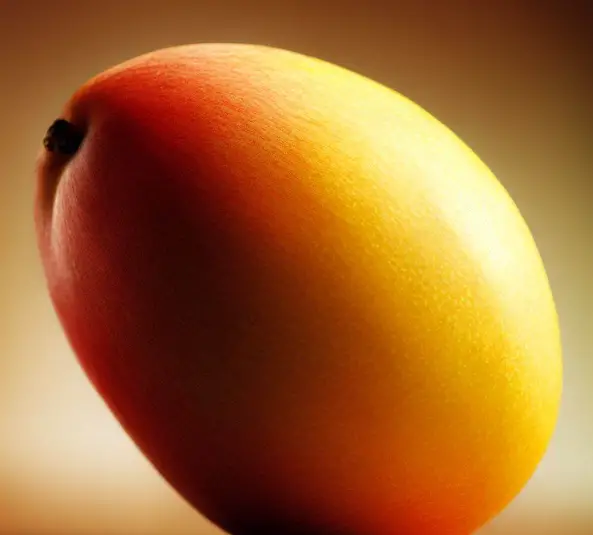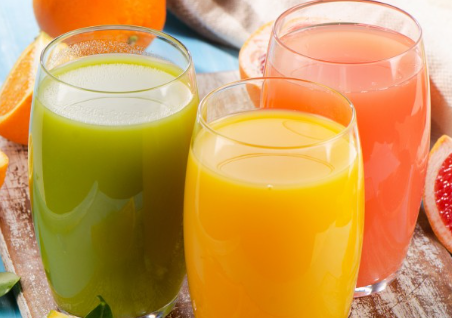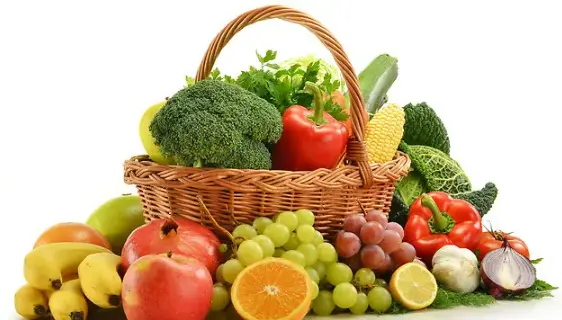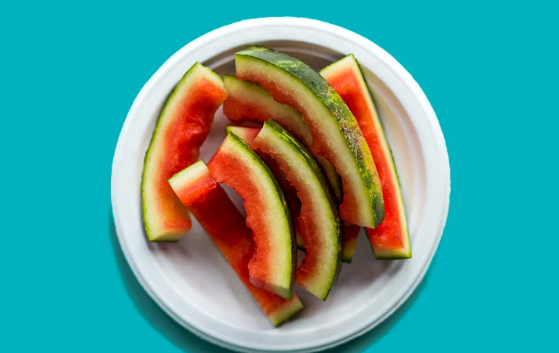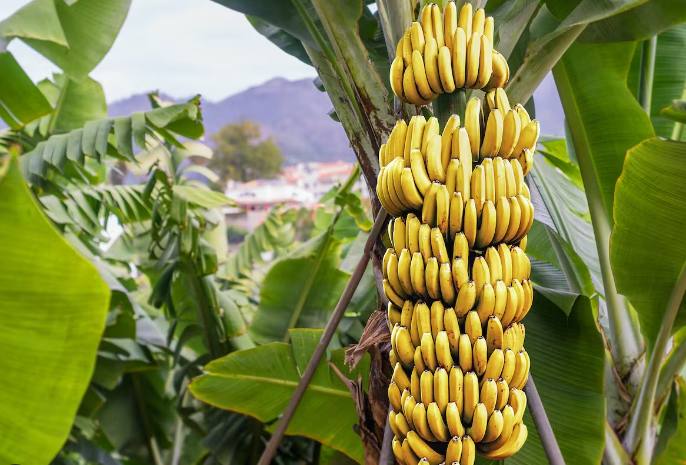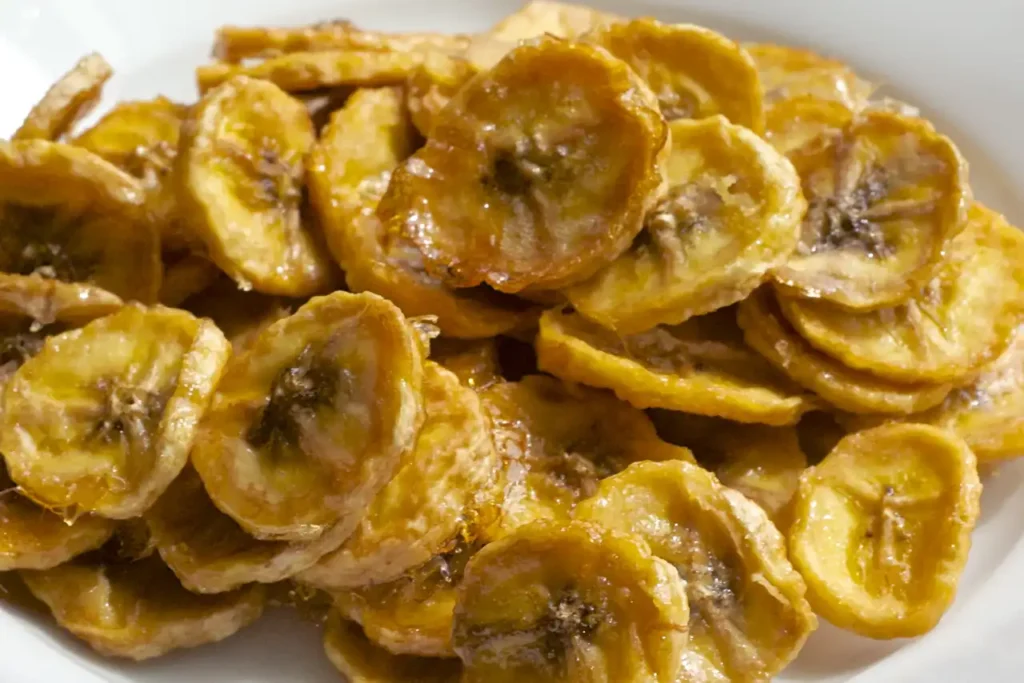Fruits are packed with essential stuff like vitamins, minerals, stuff that stops oxidation, and fiber which we need to be healthy. There are some really great fruits that have just one big seed in the middle. These single-seeded fruits are amazing for your health and have lovely tastes. You should definitely eat them more.
When we talk about single-seeded fruits, we mean the ones with just one seed. Even though they might not be as famous as the fruits with many seeds, they have their own special tastes and health benefits. Fruits are really good for us, and those with a single seed have all the things we need like nutrients, minerals, and things that stop oxidation.
Table of Contents
1. Mango
People love calling the mango the king of fruits, and there’s a good reason for that. Mangoes are super yummy with a sweet, creamy feel, and they’re full of good stuff for you.
Mangoes are really good for vitamin C and vitamin A. If you have one cup of mango, you’re all set for vitamin C for the day. Vitamin C helps you fight off germs, keeps your skin healthy, and stops oxidation. Vitamin A is good for your eyes and helps your cells grow right.
That’s not all — mangoes also have fiber, potassium, copper, and B vitamins. Fiber makes your stomach happy, potassium takes care of your heart, copper helps you take in iron, and B vitamins change the food you eat into energy.
Mangoes also have some super strong antioxidants like zeaxanthin and astraxanthin that keep your cells healthy and bring down swelling. If you eat mangoes a lot, you might be less likely to get things like cancer, diabetes, heart problems, and eyesight issues when you’re older.
You can enjoy mangoes by themselves, blend them into yummy smoothies, or make a sauce called chutney with them. Mangoes can make lots of dishes taste amazing.
2. Peach
Delicious, sweet peaches are favorites, especially in the summertime. They’re kind of fuzzy outside and when you bite into them, you get this juicy, bright inside that’s super tasty. Peaches are full of good chemicals, vitamins, and minerals.
The chemicals in peaches stop oxidation and swelling. This means they fight off cell damage and protect you from getting sick a lot. If you eat a peach, you get about 10% of the vitamin C you need each day which helps keep your immune system fighting.
Peaches also have a bunch of other things like niacin, vitamin E, vitamin K, magnesium, phosphorus, potassium, and copper. They can help lower bad cholesterol and keep your eyes healthy because they have lutein and zeaxanthin. You can enjoy peaches in lots of ways: eat them by themselves, bake them, grill them, or blend them into a drink.
3. Cherry
Cherries are small but full of flavor and great for nutrition. They come in that eye-catching red and have a nice mix of tart and sweet.
Cherries are loaded with antioxidants, like anthocyanins, which make them red. These antioxidants fight off disease, help you look younger, and can lower the risk of heart issues.
They’re a good source of vitamin C, potassium, and fiber — important for staying healthy. Vitamin C is great for your immune system, potassium for your heart, and fiber for a happy stomach.
Some research shows that cherries can lower uric acid which helps with gout, and drinking cherry juice before bed might help you sleep better. You can snack on cherries, toss them in salads, or add them to a mix of nuts and other fruits.
4. Avocado
Avocados are really trendy right now and it makes sense because they taste rich and are super good for you.
Avocados are filled with loads of vitamins and minerals — about 20 types. They have healthy fats, fiber, folate, vitamin K, and loads of potassium.
The fats in avocados help your body use vitamins A, D, E, and K better, and can even make your cholesterol numbers look better by lowering the bad LDL and increasing the good HDL.
They also have an antioxidant called lutein, which is good for your eyes, and the fiber and potassium in them help with digestion and blood pressure.
Avocados are great on bread, in guacamole, in drinks, or on salads. They add a creamy flavor to both sweet and savory foods.
5. Apricot
Apricots may be tiny, but they’re a powerful source of nutrition and are really yummy, with a mix of sweet and tart flavours.
They’re especially good for vitamin A. Having vitamin A means you’ll have good eyesight, a strong immune system, and healthy skin.
Apricots also have fiber, vitamin C, potassium, and copper, which are all good for your stomach, immune system, heart, and helping your body use iron. Eating apricots may help stop inflammation, cancer, heart disease, and liver problems. People also dry apricots to enjoy them as a snack.
Add juicy apricots to your yogurt, cook them into sweet treats, or take the handy dried ones with you as a snack when you’re out and about.
6. Lychee
Lychee is a special fruit from China that’s loved all over because of its different taste and feel. The spiky pink shell hides juicy, see-through flesh that smells flowery and tastes sweet.
Lychees are full of good stuff like fiber, vitamin C, potassium, copper, phosphorus, and magnesium. These help keep your immune system strong, your digestion working well, your blood pressure right, and your heart in shape.
They also have things called antioxidants, like flavonoids and anthocyanins. These fight against damaging particles in your body that can cause serious illnesses. Studies say lychees could help in fighting cancer, diabetes, viruses, swelling, and brain diseases.
Try fresh lychees on their own, mix them in drinks and sweets, or add them to your main meals. Canned lychees are good too, and they’re great in snacks and fancy drinks.
7. Nectarine
Nectarines look just like peaches, but without the fuzz. They come from China too, and you can find them with white, yellow, or orange insides.
These fruits have an orange-colored antioxidant called beta-carotene, which is great for your eyes, your ability to make babies, and keeping your immune system working well.
They’ve got vitamin C to fight off sickness, potassium for a healthy heart, and lutein with zeaxanthin to help keep your eyes sharp.
They’re full of bright antioxidants that save cells from getting messed up by unstable particles. Some studies show nectarines might help stop you from getting too heavy, having diabetes, or heart diseases.
Nectarines are yummy fresh, in pies, tarts, on the grill, or in a blended drink.
8. Pistachios
Pistachios are seeds that grow in bunches on trees in the Middle East. When they’re ready to eat, their shells crack open. They’re usually beige, cream, or green.
They have antioxidants like lutein, zeaxanthin, and beta-carotene that are really good for your eyes and lower your chance of eye problems when you get older.
Pistachios also come with vitamin B6, thiamin, copper, phosphorus, manganese, and stuff called phenolic compounds. All these are good for your heart, blood sugar, tummy, body defense systems, and more.
Research says eating pistachios could make you have less bad cholesterol, fat in your blood, and swelling. They might even help stop cancer, diabetes, brain diseases, liver problems, and breathing issues.
Have pistachios as a tasty snack, or add them to your salads, desserts, and main dishes.
9. Longan
Longans aren’t as famous as some fruits but they’re really good for you and taste a bit like pineapples and grapes.
They’ve got special chemicals called polyphenols and flavonoids which stop cell damage from unstable particles. This means they could help stop you from getting cancer, looking older faster, and having too much swelling in your body.
Longans are full of vitamin C (even more than oranges!), potassium, magnesium, phosphorus, and riboflavin. These nutrients give your immune system a boost, help control your blood pressure, and make your nerves work properly.
In traditional Chinese medicine, people take longans to put more iron in their blood, calm their nerves, and help them sleep better. We still need to learn more, but what we know so far is good!
Add longans to fruit salads or sweets to enjoy their unique sweet taste and great benefits.
10. Rambutan
Rambutan comes from Southeast Asia and has a hairy look, but inside is a white fruit that’s really tasty and good for you.
A cup of rambutan offers lots of vitamin C—about 80% of what you need each day—which helps your immune system and protects against long-term sicknesses.
This fruit also brings you iron, calcium, phosphorus, potassium, magnesium, along with antioxidants like gallic acid and corilagin. All these together support strong bones, good digestion, and protection from viruses.
The antioxidants in rambutan might also protect against cancer, diabetes, heart sickness, and brain problems. You can eat them fresh or canned, in fruit salads, blended drinks, and cool beverages.
11. Gooseberry
Gooseberries may be small, but they are filled with nutrients. Their unique sweet and tangy taste makes them perfect for desserts, drinks, and even savory recipes.
These little green berries are low in calories but have a lot of vitamin C. In fact, eating just one cup of gooseberries will give you more than 600% of the vitamin C you need each day.
Vitamin C helps you stay healthy, heals your skin and tissues, and fights off damage from stress and pollution. Gooseberries also have a lot of manganese, potassium, fiber, and vitamin A.
The gooseberries come with polyphenols, which are powerful substances that attack dangerous free radicals in your body. This can help prevent cancer and signs of aging. They’re also good for people with diabetes because they can lower blood sugar levels.
You can blend gooseberries into a smoothie, mix them in oatmeal, or cook them down into a sweet sauce for desserts.
12. Olive
Olives are famous for the oil they produce, but the entire fruit is packed with health benefits. Olive trees can be found in the Mediterranean, Asia, and Africa.
Green and black olives have vitamins E, iron, copper, calcium, sodium, phytochemicals, and healthy fats. These nutrients help make your bones stronger, reduce inflammation, control your blood pressure, and lower bad cholesterol levels.
Research suggests that eating olives can lower the risk of heart disease, cancer, type 2 diabetes, weak bones (osteoporosis), and low iron levels (anemia). The main antioxidant in olives, called oleuropein, might even help prevent Alzheimer’s disease.
Olives taste great by themselves, in salads, or used as a topping. They can also be found pickled, filled with different stuffings, or turned into olive oil.
13. Almond
Almonds are often called nuts, but they’re the seed found inside the almond fruit. Almond trees originally grew in Asia and the Middle East.
The almond’s hard shell houses the nutritious almond seed. You can enjoy almonds raw or roasted for a tasty and healthy snack.
Rich in vitamin E, manganese, magnesium, tryptophan, fiber, protein, and healthy fats, almonds are excellent for your heart, keeping blood sugar stable, maintaining healthy skin, and feeling full between meals.
Thanks to their anti-inflammatory and antioxidant content, almonds could also help lower the chances of getting cancer, respiratory issues, and brain disorders like Alzheimer’s.
Almonds are versatile; you can munch on them raw, roasted, turn them into almond butter, or sprinkle chopped almonds on salads, yogurt, or oatmeal.
14. Walnut
Walnuts have been grown since ancient times in Persia and are prized for their ability to support brain health. Inside the hard, wrinkly shell is the walnut seed, full of goodness.
Walnuts have vitamin E, folate, melatonin, alpha-linolenic acid, and more than 20 different antioxidants called polyphenols. These nutrients are great for the heart, managing weight, memory, and overall well-being.
The antioxidants in walnuts fight off the free radicals that can lead to illnesses. Regularly eating walnuts might help reduce inflammation and lower the risk of heart disease, cancer, and brain disorders.
You can put walnuts in oatmeal, yogurt, salads, or just eat them by themselves for a tasty, brain-boosting snack.
15. Cashew Nut
Cashews aren’t nuts but seeds that hang beneath the cashew apple. The cashew tree comes from Brazil and now grows in many tropical places.
Cashews are full of nutrients like copper, magnesium, zinc, iron, phosphorus, selenium, and vitamins E and K. They are good for building strong bones, boosting the immune system, making nerves function right, and protecting your body with antioxidants.
The healthy fats in cashews can help keep your cholesterol and triglycerides at safe levels. Cashew nuts also contain anacardic acid, which might have anti-cancer properties according to early research.
You can add cashews to trail mix, stir-fries, and salads, or just snack on them for a tasty and nutritious boost.
Wrapping Up
Fruits with one seed have a special mix of antioxidants, vitamins, minerals, and plant nutrients important for our health. They come in many tastes, textures, and colors and make healthy and tasty additions to your diet.
Fruits like mangoes, peaches, cherries, avocados, apricots, lychees, and nectarines add a sweet burst of flavor. Exotic and savory options include litchis, longans, rambutans, gooseberries, olives, almonds, walnuts, and cashews.
Try these 15 fantastic fruits with one seed in different ways—fresh, dried, roasted, or blended into recipes. Mix up the fruits you eat and enjoy the variety of nutrition benefits they offer. There are so many ways to eat fruits with one seed, you’ll always find new ways to add them to your meals.







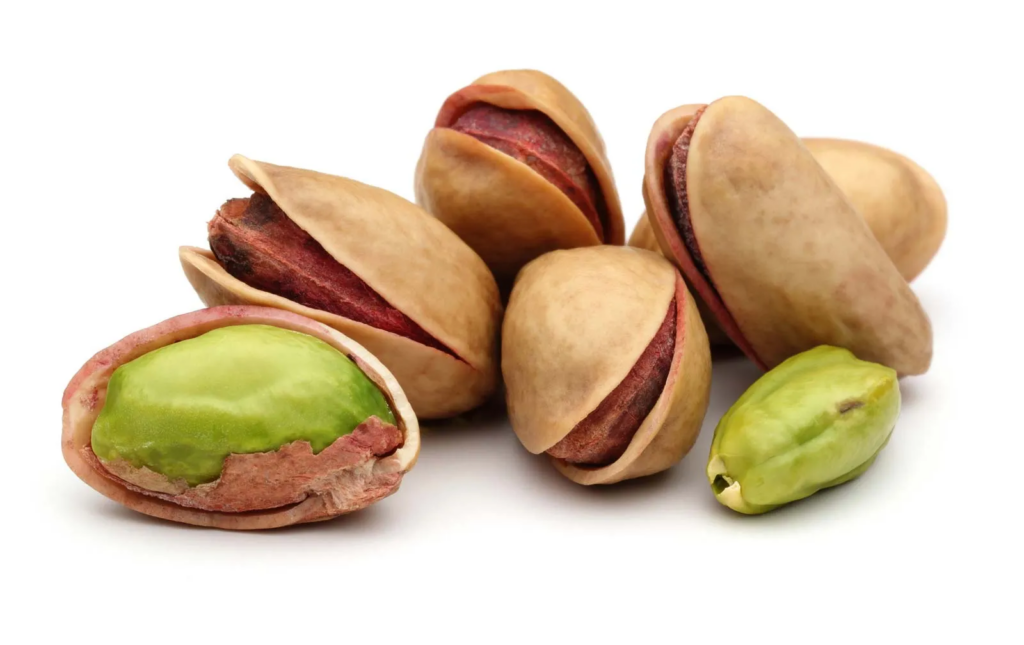



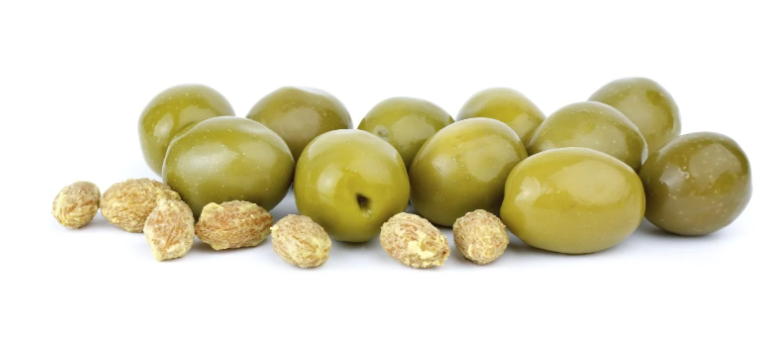

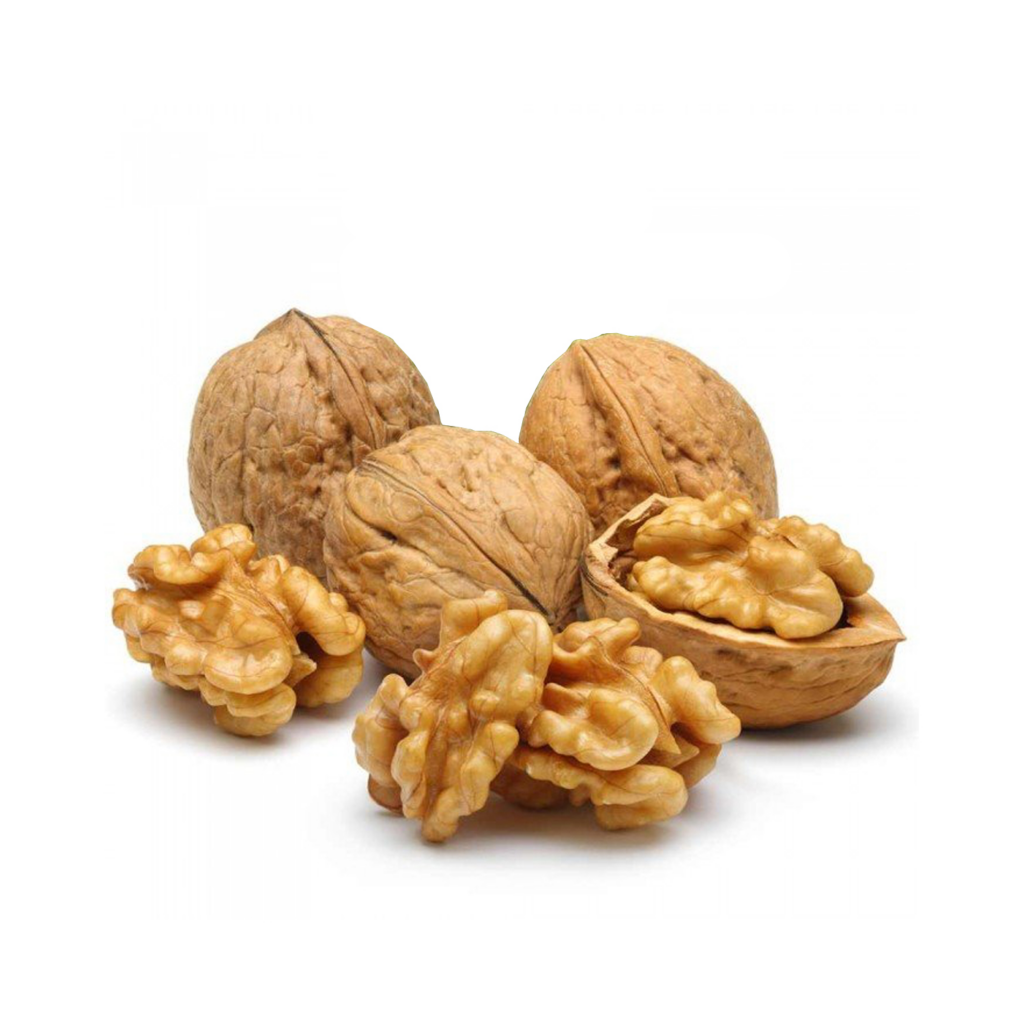

![What Is the National Fruit of Korea And Why? [ANSWERED]](https://fruitonix.com/wp-content/uploads/2023/04/What-Is-the-National-Fruit-of-Korea-And-Why-1024x683.jpg)
